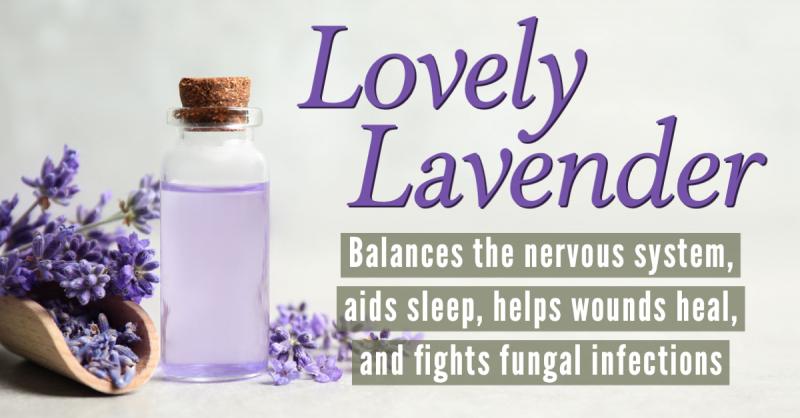
Lavender is the most popular essential oil used for aromatherapy. In fact, the term aromatherapy was coined because of lavender. After an explosion in his laboratory in 1937, the French cosmetic chemist Rene-Maurice Gattefosse, was badly burned. He inserted his painfully burned arm into a nearby vat of lavender oil and was amazed at the miraculous way the lavender oil instantly relieved the pain. The arm also healed quickly and without scarring.
Lavender Eases Stress and Aids Sleep
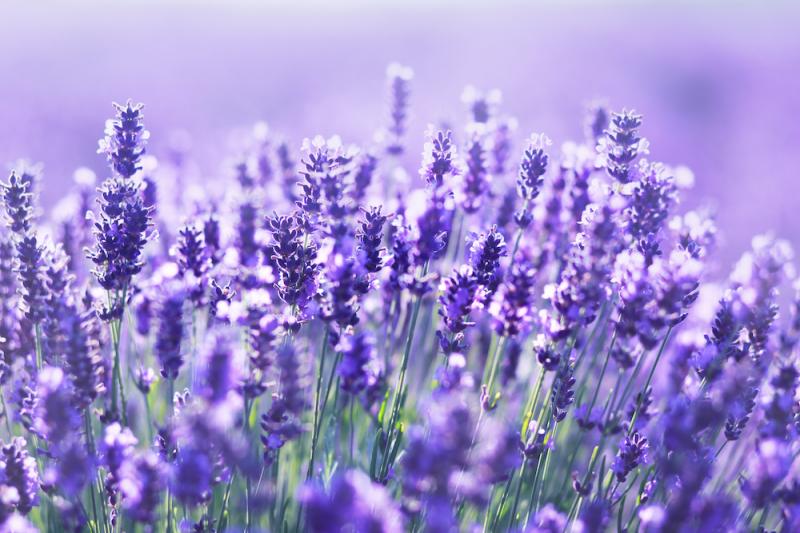 Just about anyone who has experience with aromatherapy or herbalism knows that lavender is one of the best relaxing nervines. Both the herb and the essential oil have a calming effect on the mind and the body. The aroma of lavender eases feelings of stress and tension and balances the nervous system, easing both anxiety and mild depression.
Just about anyone who has experience with aromatherapy or herbalism knows that lavender is one of the best relaxing nervines. Both the herb and the essential oil have a calming effect on the mind and the body. The aroma of lavender eases feelings of stress and tension and balances the nervous system, easing both anxiety and mild depression.
Lavender is also a major soporific herb, which means that it aids sleep. The herb has been sewed into small pillows which are placed in the bed to aid sleep. The oil can also be diffused into the bedroom for 10-15 minutes prior to bedtime as a calming sleep aid. Lavender herb or essential oil can also be used in baths to help a person relax at the end of a stressful day.
Lavender's Nervous System Effects
Lavender essential oil produces some interesting effects on the nervous system. It appears to act as a mild central nervous system (CNS) depressant, which means it reduces overall CNS activity. I learned about this way back in the 1980s from my friend and associate Carl Robinson who was a pioneer in therapeutic aromatherapy. He had a dog who got in a tangle with a porcupine and had a bunch of quills in his nose and face, which was obviously very painful for the dog. Carl gave the dog drop doses of lavender oil every minute or so until it sedated the dog and he fell asleep. He was then able to remove the quills.
In addition to this general CNS calming effect, lavender also appears to balance the two branches of the autonomic nervous system (ANS), which are the sympathetic (SNS) and parasympathetic (PNS) systems. Generally speaking, anxiety is an excess of SNS activity, which elevates blood pressure and heart rate, reduces digestive secretion and intestinal motility, and increases muscle tension and focused alertness. This is the part of the nervous system that fires off when we’re scared or nervous, but it also helps us focus and sustain activity.
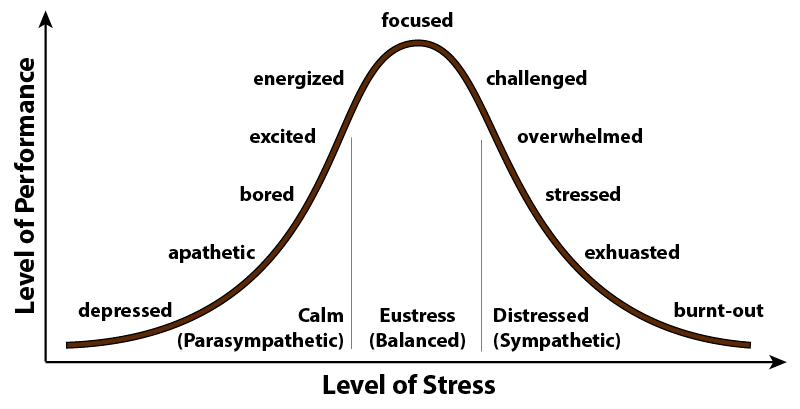 In contrast, the PNS calms the heart rate, lowers blood pressure by dilating the arteries, increases digestive secretion and intestinal motility, and relaxes muscle tension. Repeated stressful experiences, and especially trauma and abuse, will put a person into a hyper-alert state where they always feel on guard and find it difficult to relax, sleep, and digest their food.
In contrast, the PNS calms the heart rate, lowers blood pressure by dilating the arteries, increases digestive secretion and intestinal motility, and relaxes muscle tension. Repeated stressful experiences, and especially trauma and abuse, will put a person into a hyper-alert state where they always feel on guard and find it difficult to relax, sleep, and digest their food.
Too much SNS activity makes us feel stressed and eventually exhausted, while too much PNS activity can make us lethargic and bored. Balancing these two branches of the ANS helps us feel energized and motivated, which is the peak state for optimal performance.
Specific Nervous Indications for Lavender
Lavender is particularly helpful for people who are suffering from nervous exhaustion, where they are tired but unable to sleep. During the day, their head may droop from fatigue, but at night they feel agitated and unable to relax and fall asleep. It can be helpful for nervous, high-strung people who are too much up in their heads and are picky about details, but unable to see the larger picture. They may suffer from irritable bowel, indigestion, insomnia, headaches, and general muscle tension.
Topical Uses for Lavender Essential Oil
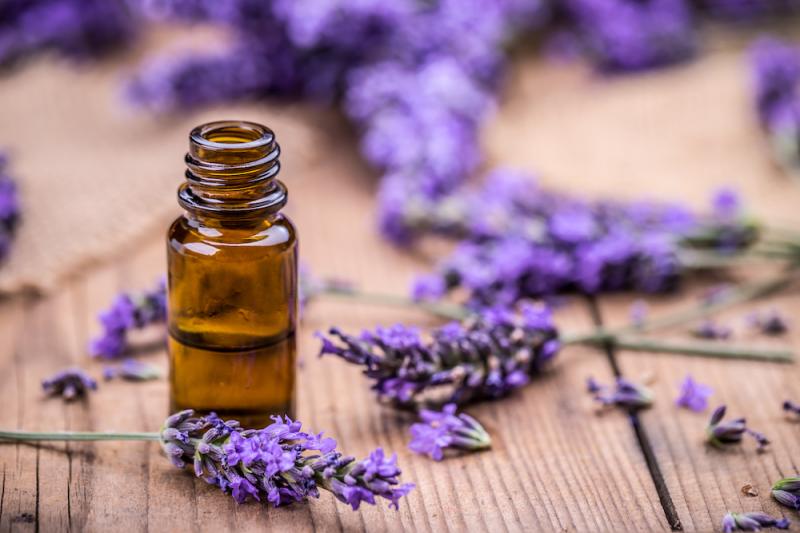 Lavender is known to possess antimicrobial activity. In fact, its scientific name, Lavandula, comes from the Latin lavare, “to wash.” This comes from its use as a popular ingredient in eau de toilette, a mixture of water, alcohol, and essential oils used after shaving or bathing, a forerunner to modern perfumes and colognes.
Lavender is known to possess antimicrobial activity. In fact, its scientific name, Lavandula, comes from the Latin lavare, “to wash.” This comes from its use as a popular ingredient in eau de toilette, a mixture of water, alcohol, and essential oils used after shaving or bathing, a forerunner to modern perfumes and colognes.
Lavender oil is non-irritating and can be applied neat (or undiluted) to the skin. Applied topically to wounds and burns, lavender helps to prevent infection and speed wound healing. It is also cicatrizant, a term referring to agents that help wounds heal without scars. It can also be mixed with a massage oil, or a fixed oil like olive oil or coconut oil, and applied topically to ease muscle tension and pain or relieve dry eczema.
Lavender as an Antifungal Agent
Lavender is an excellent antifungal herb both taken internally and used topically. Carl Robinson also introduced me to a great antifungal blend for treating thrush and other fungal infections. I included the the recipe in Strategies for Health and included it here. To make it mix 4 drops of cajeput oil, 3 drops of lavender oil, 2 drops of thyme oil, and 1 drop of lemon oil into 30 drops of olive oil. Take 1 or 2 drops internally twice daily for three to seven days. You can also use it for children with thrush by diluting it in 40 drops of olive oil and using one drop twice daily for a maximum of three to four days. The blend can also be applied topically.
Other Uses for Lavender
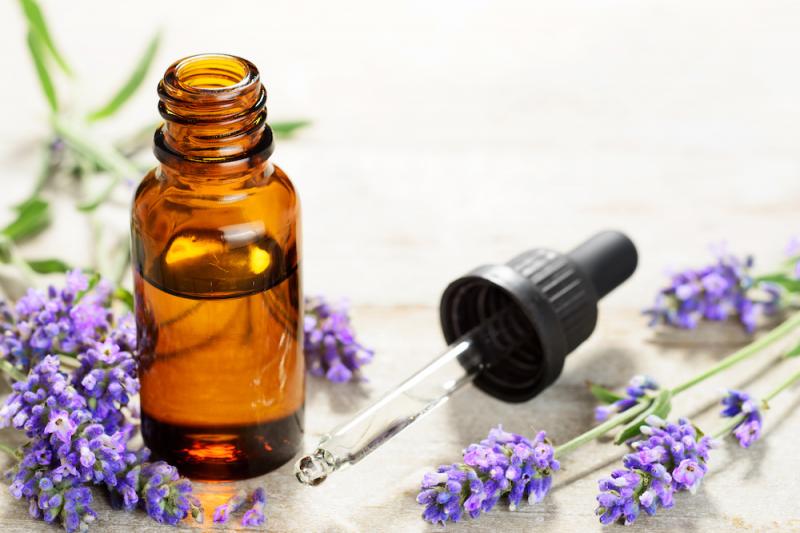 Lavender can also be taken as a flower essence for people who are feeling high-strung and constantly wound up. It helps calm the mind, balance the emotions, and soothe the soul on a deep level. It can even help to ease headaches, vision problems, tight neck and shoulder muscles, and headaches associated with tension and stress.
Lavender can also be taken as a flower essence for people who are feeling high-strung and constantly wound up. It helps calm the mind, balance the emotions, and soothe the soul on a deep level. It can even help to ease headaches, vision problems, tight neck and shoulder muscles, and headaches associated with tension and stress.
Lavender is also edible but has a very strong flavor, so it needs to be used sparingly. It is often infused into sugar or honey for use in sweet treats. It can also be part of one of my favorite seasonings, herbs de provence. The blend I buy from Mountain Rose Herbs contains organic thyme, organic rosemary leaf, organic marjoram, organic winter savory, and organic English lavender flowers. I regularly add this to vegetable dishes and soups. Lavender is also used in tea blends for relaxing the nerves.
Getting the Benefits of Lavender
The most popular way to use lavender is to use the essential oil, which can be applied topically, inhaled, or taken internally (highly diluted) for short periods of time. However, in addition to being the most popular essential oil, lavender is also the most adulterated essential oil, so you need to make sure you’re purchasing it from a very reputable company, that sources it carefully. What you want is the oil from Lavandula officinalis. Spike lavender, Lavandula spica, is cheaper and has more camphor in it, making it more analgesic, but it’s not as good for the nervous system as true lavender.
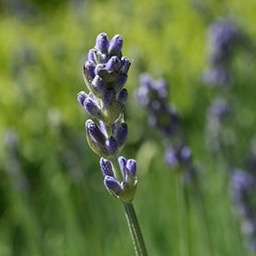 Lavender is also used as an herbal tincture and is found as an ingredient in formulas to reduce anxiety, aid sleep, ease pain, and relieve indigestion and bloating since it both stimulates digestive activity and acts as a carminative.
Lavender is also used as an herbal tincture and is found as an ingredient in formulas to reduce anxiety, aid sleep, ease pain, and relieve indigestion and bloating since it both stimulates digestive activity and acts as a carminative.
You can also grow lavender in your garden. As a native of Europe, it grows well in temperate climates in zones 5 through 9. I’ve found it is pretty easy to grow and I find it a joy to just run my hand through it to smell its wonderfully relaxing and uplifting fragrance. If you don’t have a garden, you can grow lavender in a pot indoors.
However you use lavender, it is an important medicinal plant that many people need in our modern fast-paced, mentally stimulated, and stress-filled world.
Downloads
Steven's Articles
-

-
Teasel
A traditional herb for healing bones and joints…
-

-
Barberry and Healthy Personal Boundaries
A thorny shrub for fighting infections and supporting…
December
-

-
The Evidence for Berberine
A yellow alkaloid found in traditional infection-fighting…
-

-
The Sensible Use of Caffeinated Herbs
Kola nuts, guarana, and yerba mate and other herbs…
-

-
The Health Benefits and Problems with Coffee
This popular caffeinated beverage can be beneficial…
October
-

-
Understanding Caffeine & Cellular Adaptation
Preserving the power of caffeine's buzz and the…
September
-

-
Horseradish
A pungent spice for aiding protein metabolism…
-

-
Banaba or Crepe Myrtle
A beautiful tree from Southeast Asia whose leaves…
August
-

-
Monkeyflowers
Flower essences to help see ourselves more clearly…
-

-
Mariposa Lilies
Strengthening the bond between mother and child…
-

-
The Noble Bay Leaf
A common kitchen herb for aiding digestion and…
-

-
Epimedium: Horny Goat Weed
A circulatory stimulant and kidney yang tonic…
July
-

-
The Medicinal and Nutritional Benefits of Apricots
A nutritious fruit and valuable medicinal seed for coughs
-

-
Dogwoods
Asian dogwood is used to stop excessive discharge,…
June
-

-
Neem: The Village Pharmacy
A popular Ayurvedic remedy for dental and immune…

